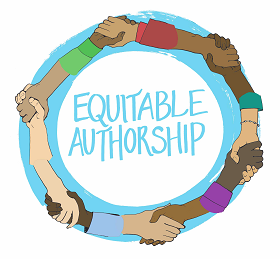
An international team, including LSTM’s Dr Sepeedeh Saleh and Dr Eva Heinz in collaboration with Prof. Refiloe Masekela (University of Kwa-Zulu Natal, Durban, South Africa) and Dr. Seye Abimbola (University of Sydney, Sydney, Australia), has published an opinion piece in PLOS Global Public Health on behalf of the Equitable Authorship Consensus Statement Group.
The Equitable Authorship Consensus Statement Group, consisting of a multidisciplinary group of editors and researchers from South Africa, Kenya, Tanzania, Nigeria, Malawi and the UK, reviewed relevant literature and existing guidelines and developed a consensus statement that promotes equitable authorship in research publications from international research partnerships.
The statement was recently published in a landmark paper, co-authored by several LSTM researchers, which highlighted practical measures to address the risk of so-called ‘parachute research’, where researchers, typically from high income countries, conduct research in low- or middle-income countries (LMIC) without adequate recognition of the contribution of authors in these countries.
The consensus statement proposed a pragmatic way to challenge and change behaviours. It recommended that journals require authors to include a ‘reflexivity statement’ that demonstrates how equitable partnership has been promoted throughout the design, conduct and publication of the research. The team outlined a specific list of considerations for authors to address in their structured reflexivity statements, including the origin of the research question and study design, support for local capacity, how authorship was assigned especially in relation to gender balance, early career researchers and recognition of local leadership. A suggested assessment checklist was also provided to support editors in evaluating these statements. Finally, the team made additional recommendations for journals and editors, including removal of arbitrary authorship limits, expectation of fair acknowledgement for local authors, support of LMIC research capacity, and aim to address wider structural imbalances in research practice and reporting and suggest these recommendations be considered more widely across the academic publishing system.
Recently, encouraging steps have been taken by journals within the research world towards ensuring more equitable research practices, with journals by Cell Press and PLOS utilising questionnaires for all authors to complete around inclusivity and ethical practice; and the Microbiology Society has published an invited editorial and launched a survey that is currently being evaluated to get input from the community on implementing the reflexivity statements to stop parachute research as well as how to make the society as a whole more inclusive.
Dr Saleh: “The issue of inequitable relationships in global health research is deeply ingrained, and it is our shared responsibility as part of the research ecosystem to work towards addressing this. The recommendations here provide some steps to help drive the necessary changes. We hope they will trigger further reflection and action.”
Dr Heinz continued: “First steps are never perfect, but we can't be paralyzed in the status quo for fear of imperfection. The silence about so many issues is deafening. We are editors, grant panels, advisory boards, societies. We are the system. So let's change it, one (imperfect) step at a time.”
The team continues to call other journals and funders to require that manuscripts and applications submitted from global North-South partnerships include these considered author reflexivity statements which will be considered in the overall assessment of manuscript suitability for publication and/or funding. In addition, the team continue to call researchers and research institutions to consider these statements with regards to their current research practices, from the point of research conceptualisation, to drive an increase in equity in global health research.
Equity in global health research: A proposal to adopt author reflexivity statements - as published in PLOS Global Public Health Published: March 30, 2022 - https://doi.org/10.1371/journal.pgph.0000160